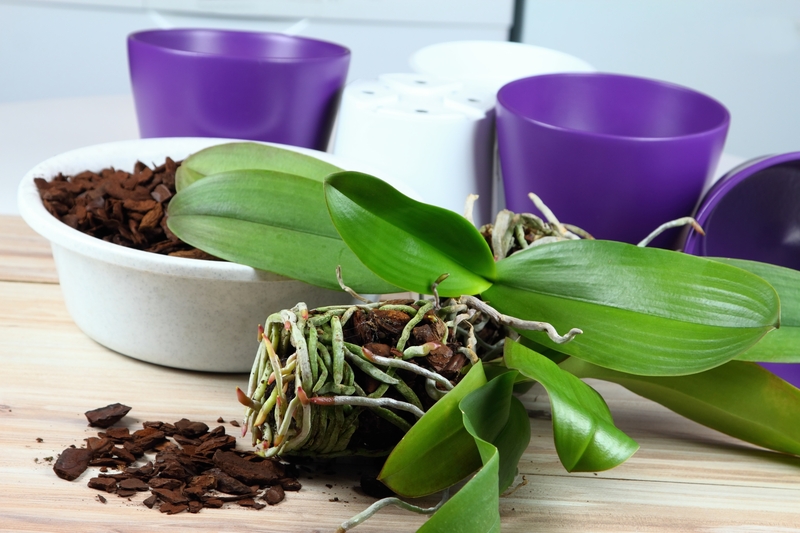Innovative Soil Genesis from Organic Refuse
Posted on 07/06/2025
Innovative Soil Genesis from Organic Refuse: A Comprehensive Overview
As the world grapples with environmental challenges, the search for eco-friendly solutions to waste management and sustainable agriculture has never been more vital. One groundbreaking approach gaining traction is Soil Genesis from Organic Refuse--the process of creating new, fertile soils using discarded organic matter. This method transforms waste into a valuable resource, enhancing soil health and productivity, while closing critical nutrient cycles. In this in-depth article, we'll explore the science, practical applications, and global impact of this remarkable technique.
Understanding Soil Genesis: From Nature to Innovation
Soil genesis--the natural process by which soils are formed--is typically a slow dance involving rock weathering, biological activity, organic matter accumulation, and other geological factors. However, innovative soil creation leverages human ingenuity to accelerate this process using organic refuse. This not only diverts waste from landfills but also produces high-quality soils that can rejuvenate degraded lands and support sustainable agriculture.
What Is Organic Refuse?
- Food scraps: Peels, leftover produce, and other kitchen waste.
- Yard waste: Grass clippings, leaves, and small branches.
- Agricultural residues: Straw, husks, and farm byproducts.
- Manure: Animal waste from livestock operations.
These discarded materials are often unvalued, but when used as feedstock for soil fabrication, they represent a crucial renewable resource.

The Core Principles Behind Innovative Soil Genesis from Organic Refuse
The process of creating new soils from discarded organics is rooted in several scientific and agricultural principles:
- Decomposition & Humification: Organic refuse undergoes microbial breakdown, producing humus--the nutrient-rich, stable organic component of soil.
- Nutrient Cycling: Nutrients locked in waste are released and made available for plants.
- Soil Structure Formation: Organic matter improves soil aggregation, which enhances water retention, aeration, and root penetration.
- Biological Enrichment: The process introduces beneficial microorganisms, boosting soil fertility and resilience against diseases.
Technologies Advancing Soil Fabrication from Organic Materials
Modern innovation in soil genesis rests upon both traditional composting and advanced technological interventions. Key technologies include:
- Vermicomposting: Using earthworms to accelerate the breakdown of organic matter, producing superior worm-cast soil.
- Aerated Static Pile Composting: Oxygen is mechanically supplied, permitting faster and more complete decomposition.
- Fermentation-Based Processes: Techniques such as Bokashi use anaerobic fermentation to stabilize organics rapidly.
- Biochar Integration: Combustion of plant waste in low oxygen produces biochar, which, when mixed with organic matter, boosts cation exchange capacity and carbon sequestration.
- Engineered Soil Systems: Controlled addition of minerals, clays, or microbial inoculants to enhance the performance of fabricated soils.
The Environmental and Social Benefits of Soil Genesis from Organic Refuse
Transitioning from waste disposal to soil creation using organics offers a host of compelling advantages:
- Landfill Diversion: Reduces methane emissions from organic waste in landfills, thus combating climate change.
- Soil Restoration: Rejuvenates degraded and contaminated soils, improving food security.
- Resource Efficiency: Maximizes the lifecycle of organic materials, returning nutrients to the soil.
- Carbon Sequestration: Increases soil organic carbon, helping mitigate global warming.
- Community Engagement: Supports urban agriculture and local food systems by providing accessible, fertile soil.
Innovative soil genesis through organic refuse represents a win-win for both environmental stewardship and economic development.
Case Studies: Global Approaches to Soil Fabrication
India: Converting Crop Residue into Agricultural Soil
In northern India, farmers collect rice straw and other crop residues, once considered waste and often burned, leading to severe air pollution. These materials are now processed in community composting units, transforming them into enriched soils that improve yields and reduce fertilizer dependence. The result is significant air quality improvement and robust soil revitalization.
Europe: Urban Green Infrastructure with Engineered Soils
Many European cities face challenges with poor urban soils. Municipalities have adopted innovative soil creation using green waste and composts, combined with sand and minerals, to create substrates for rooftop gardens and urban parks. This expands green spaces sustainably, promotes urban biodiversity, and governs rainwater more effectively.
North America: Municipal Organic Waste to Topsoil
Cities across North America now operate large-scale composting facilities that turn collected food waste, leaves, and grass clippings into commercial topsoil products. These products are marketed to landscapers and gardeners, closing the nutrient loop and bolstering local economies.
How to Start Creating Soil from Organic Refuse: A Practical Guide
Whether you're an urban gardener or a rural farmer, the basics of soil generation from organics are approachable. Here's a step-by-step guide:
- Collection: Gather organic waste, ensuring a mix of "greens" (nitrogen-rich) and "browns" (carbon-rich) materials.
- Shredding/Chopping: Break larger materials into finer pieces to speed up decomposition.
- Layering and Mixing: Alternate layers of greens and browns, occasionally aerating the pile to supply oxygen.
- Moisture & Temperature Monitoring: Keep the pile moist (not soggy), and ensure temperatures stay in the optimal range (54-65?C) for rapid microbial activity.
- Maturation: Allow the compost to break down fully and "cure" for several weeks after the main decomposition process.
- Soil Creation: Optionally blend the matured compost with minerals, biochar, or existing topsoil to create an engineered, enhanced soil suitable for your target application.
Tip: Regular turning and correct ratios of green:brown materials ensure faster, odor-free composting.
Common Challenges in Soil Genesis Using Organics
- Contamination: Plastic, glass, or chemical residues can spoil the end product. Source separation and careful collection are vital.
- Odor: Poorly managed piles may emit unpleasant smells. Ensure adequate aeration and balance of ingredients.
- Pest Attraction: Finish composting in enclosed systems to minimize rodents and flies.
- Heavy Metals: Some urban organic wastes contain trace metals that require monitoring and, where possible, active remediation.

The Future of Innovative Soil Genesis from Organic Refuse
As research continues, new frontiers in artificial soil creation are opening. Scientists are exploring:
- Tailored Microbial Consortia: Advanced microbiology can create soil with specific plant growth benefits.
- Sensor-Based Composting: Digital sensors and IoT devices monitor temperature, moisture, and aeration in real-time for optimized breakdown.
- Bio-mineralization: Intentional incorporation of minerals or synthetic amendments to match native soil profiles and support unique plant communities.
- Regenerative Urban Design: Linking urban food, waste, and green infrastructure in closed organic cycles.
The potential for soil genesis from waste to contribute to climate resilience, urban greening, and food security is immense. By integrating innovation, communities can turn a liability (waste) into an asset (soil), reaping sustained environmental and social benefits.
Why Is Innovative Soil Genesis Important for Modern Agriculture?
Modern agriculture faces the dual challenges of soil degradation and mounting organic waste. Innovative soil creation from refuse provides a holistic solution:
- Productivity: Soils enriched with organic refuse support healthier, higher-yield crops.
- Reduced External Inputs: By recycling nutrients, reliance on synthetic fertilizers and pesticides is minimized.
- Sustainability: It enables closed-loop systems where waste is continuously cycled back into food production.
- Climate Mitigation: Enhanced organic matter increases soil carbon storage, offsetting agricultural greenhouse gas emissions.
Conclusion: Embracing Soil Genesis from Organic Refuse
Innovative soil genesis from organic refuse represents a transformative leap towards sustainable land management, waste reduction, and food security. By valorizing what was previously discarded, we can create new soils and new opportunities for people and planet alike. This technique is adaptable, scalable, and integral to building resilient, regenerative communities for the future.
As we move forward, investing in education, technology, and policy to support soil fabrication from organics will be essential. Choose to become part of the solution--start composting, experiment with biochar, or support municipal soil creation projects. The soil of tomorrow begins with the waste of today.
Latest Posts
Creating a Vibrant Environment Packed with Child Attractions
Exploring Creative Concepts for Garden Seating Layouts
Breaking Ground in Your Forgotten Garden Makeover

